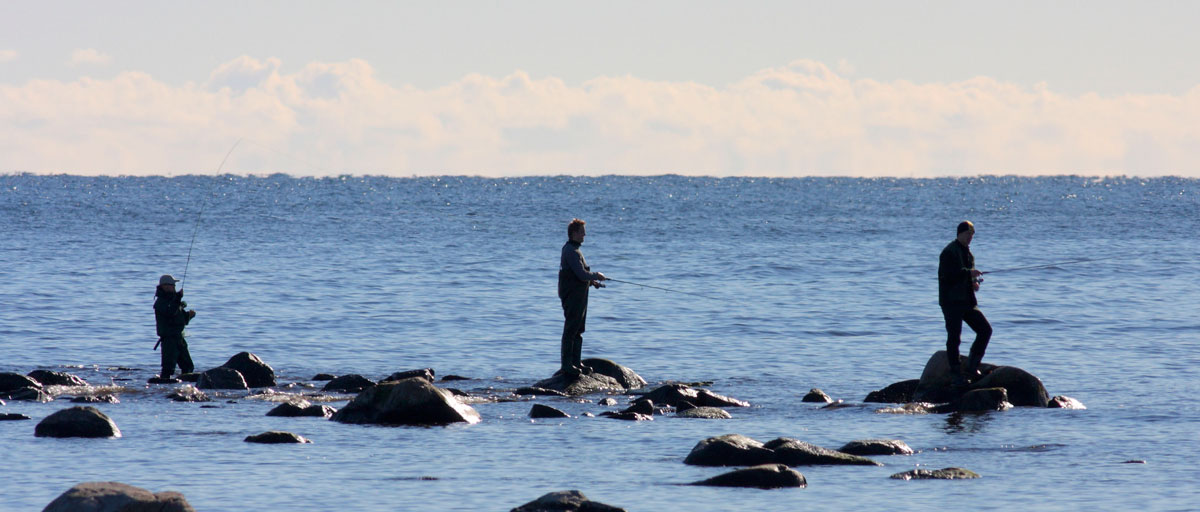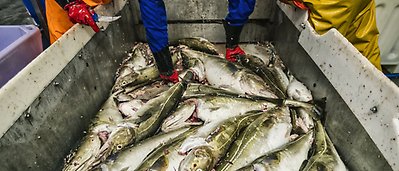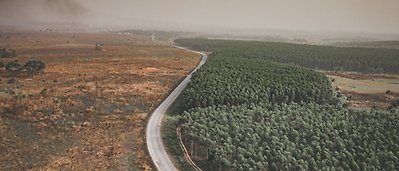
A new article develops a generalised model to study common-pool resources and the surprising nature of social-ecological regime shifts. Photo: T. Svensson / Azote
Regime shift modelling
Human nature
Better understanding of the coupling between human behavior and ecological dynamics key to predicting ecological regime shifts
- Study finds that failing to examine human and institutional behaviour with respect to ecological regime shifts can result in underestimating social-ecological risks
- Study developed generalized model, commonly used in physiology and molecular biology, to examine social-ecological systems
- Ecologists should pay more attention to the links between natural resources and human actors, study concludes
Lakes do it, soils do it, even whole coral reefs do it. Undergo regime shifts, that is. Many ecological systems go through such large, relatively sudden and pervasive changes in their structure and function, not the least when being exposed to increasing human influence.
When ecologists analyze such abrupt changes in computer models they have traditionally tended to reduce the human influence to a simple driver, such as fishing pressure or resource extraction rate. People, however, do not only have an impact on the ecological system, they also tend to adapt their behaviour in response to the ecological changes they can observe.
"Failing to include these dynamics of human and institutional behaviour, can lead to severely underestimating the risk for social-ecological regime shifts," conclude centre researchers Steven Lade and Maja Schlüter in a recent issue of Theoretical Ecology. "Interaction between humans and ecological systems can even lead to regime shifts where the ecological system in isolation had none."
Innovative modelling approach
Their new study is based on a so-called generalized modelling approach and published together with Alessandro Tavoni from London School of Economics and Simon Levin from Princeton University.
This kind of modelling (sometimes also called structural kinetic modelling) enables general statements to be made about large groups of similar mathematical models and has proven successful in physiology and molecular biology – fields where, as with regime shifts, the details of specific interactions can be difficult to determine.
The new article develops a generalised model to study a social–ecological system of broad relevance: a so-called common-pool resource. This is a resource, like a forest or a fishing ground, that benefits a group of people, but that provides smaller benefits to everyone if each individual maximizes his or her own self interest.
The model used by Lade, Schlüter and colleagues assumes the existence of a normative mechanism amongst harvesters (social disapproval of norm violators) that reduces the benefit defectors receive from selfish resource over-extraction.
This social norm encourages (but does not guarantee) a harvesting strategy that is beneficial for the group.
Surprises and early warning
One counterintuitive result from their analysis was that an increase in resource supply led to a collapse of co-operation and sudden decreases in both resource level and the payoff users receive from resource exploitation. This was due to the defectors gaining more from an increase in resource level than co-operators, tempting co-operators to defect; thus reducing the social capital needed to effectively ostracise defectors.
"We conclude that not only can the regime shift itself be surprising, but that the same goes for the direction of change in a driver that triggers a regime shift"
Steven Lade, lead author
Considering this surprising nature of social–ecological regime shifts and the fact that they seem to become more and more common in the face of global change, the authors tested early warning signals for regime shifts in their model. Early warning signals would of course be highly desirable, in order to avoid or at least mitigate the effects of regime shifts.
They showed that early warning signals developed for ecological or physical systems may be useful for anticipating regime shifts in social–ecological systems.
Demands attention
Considering the implications for natural resource management, the new study concludes that ecologists should pay much more attention to the links between natural resources and human actors. This is because social–ecological systems that under current conditions might seem to be managed sustainably through high levels of co-operation, could potentially easily be destabilised by small changes or increasing variability in social processes or the processes that link natural resources and human actors.
On the flip side, economists should pay more attention to both complex ecological dynamics and the potential for sudden changes in human behaviour.
"These considerations become particularly relevant in the context of global change, where resource dynamics are expected to become more variable or more extreme," write the authors.






